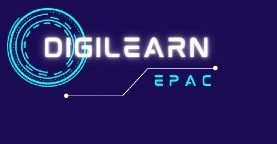Questions about EPAC course
- Students can enroll in the course with an English B1 level; however, they should obtain the B2 level certificate before their EPAC final exam for them to pass the course.
- Students are allowed to set the final exam although they do not have a B2 level certificate; nevertheless, their exam will not be graded unless they submit their B2 level certificate.
- A student who opts for continuous evaluation, but could not obtain a B2 certificate before the written exam might choose to move to global evaluation to get more time until he gets his B2 certificate.
The topic comes from the challenges proposed to you by visiting companies who collaborate with the course. Each semester, we have new challenges.
No, the OP is an oral presentation of the written document (RP) and they both have the same topic (the challenge you selected).
Some of the assignments are individual (Moodle tasks, attendance and the written exam)
The other assignments are group work (OP and RP).
No, you should group with students who opt for the same type of evaluation you belong to.
Late submissions are not graded.
This is considered an out of topic submission and it will not be graded.
To learn how to make a good presentation.
To learn how to write a research proposal.
To learn how to use English in academic and professional contexts.
The use of English language in a professional way.
It is a full semester course.
Around 1500 words.
We use rubrics that we share with you on Moodle to evaluate your oral presentations (OP).
You will do your presentations in front of a committee of at least 2 professors (one of whom will be your tutor).
They will listen to you evaluate your content, audiovisual aids, English structure, body language, interaction with the audience, fluency, accuracy, pronunciation, the originality of your proposal and the time of your presentation.
The written assignments include:
1-Moodle tasks (reading and listening tests).
2- The research proposal document (RP)
3- The written exam that is divided into (reading and listening, Theory questions, theory practice)
We use rubrics to evaluate each assignment (all rubrics are shared on Moodle).
Attendance 10%
Moodle tasks 5%
RP 20%
OP 20%
Written exam 45%
It is usually during the second of week of classes.
Students must get a minimum of 5 in all the assignments of the course to be able to pass the course. Otherwise, the student might choose between repeating the full course, and repeating the task he failed (in all cases this means taking the course in the following term).
Reading and listening.
Multiple choice.
Matching.
Filling the gaps.
5 is the minimum grade to pass each of the course assignments.
Listening and reading tasks that are auto-graded.
There are 3 major differences:
- No attendance is required for global evaluation students (the maximum grade they can get is 90%).
- The date of submissions for continuous evaluation students take place before their written exam (earlier than global evaluation students).
- Continuous evaluation students do a face to face oral presentation (OP), while the global evaluation students submit a video (the challenges are the same only the format is different).
It is a university exam the date of which is normally mentioned in the academic calendar of the college.
The number of dates the student assist to class (0.1%) + the number of time the student participated in class activities and answers the instructors ‘questions (0.9%).
There is no minimum, but the grade is affected with absentees and luck of participation.
Only students who do not submit the required assignments on time will be moved to global evaluation.
The ones who miss classes will be allowed to do the submissions if they opt for continuous evaluation (obviously missing attendance will affect attendance garde).
All references to prepare for the course exam are available on the
course syllabus document shared on Moodle.
Yes, students will receive feedback if they submit on time. Submission
will be open on Moodle between week 7 and 9.
You should follow the instructions on Moodle and the video presentations
on this website.
Yes, you can but you must submit either with progressive or global
evaluation students.
AI can be used to collect information, but not to create submissions.
Questions about EPAC webside
It is a summary of all the course content with videos and challenges to encourage independent learning.
They are not graded.
Yes, the website provides new material based on the course objectives. Students will find videos, escape rooms, practice activities and links for extra resources.
They are designed for any student who has the required English level to enroll in EPAC.
By replying to the following questionnnaire
By replying to the following questionnnaire
Yes, it is created to help students prepare for the exam and the
assignments.
